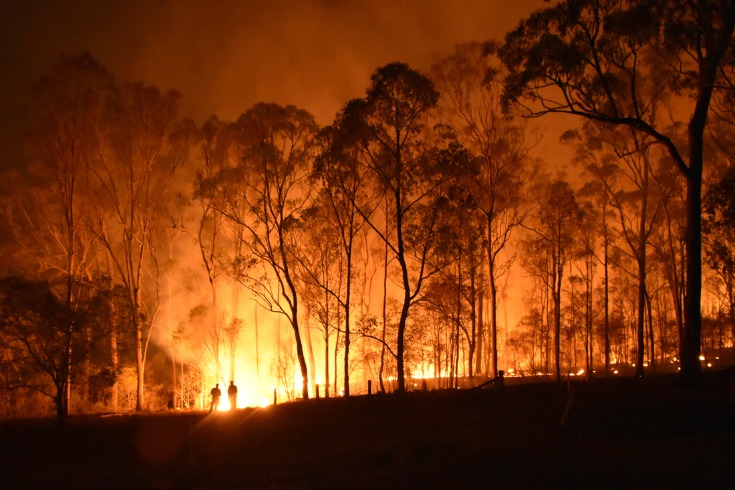
The world watched on as large tracts of Australia went up in flames during catastrophic bushfires in late 2019 and early 2020.
While the scorched earth is regenerating and rehabilitated wildlife are getting ready to return, the victims’ psychological problems are just beginning.
The globe has now turned its attention to the threat of the coronavirus pandemic that’s much closer to home. It’s important that our bushfire victims know they haven’t been forgotten and we’re here to help.
The Early Days After a Bushfire
Many people assume that victims of a bushfire (or other natural disasters) suffer most of their grief and despair in the early days. They watch the images on TV of shattered people returning to the smouldering remains of their home and think this is their darkest, toughest moment and that every day thereafter will be easier than the last. But that’s often not the case.
In the days following the loss of your home and most, if not all, of your possessions, you’re so overwhelmed there’s little time for grief. You’re finding emergency accommodation, working out where your next meal will come from and buying basics like a change of clothes and toiletries.
There are dealings with insurance companies, government departments, employers, schools, welfare groups and the bank to get through. For many these decisions are too hard right now.
It’s weeks if not months of work to take care of the family’s most pressing needs. But eventually the urgent work slows down and grief, anxiety and depression step up. It’s remembering the friend who lost their life, the priceless photos destroyed, the belongings that need replacing, and losing a lifetime’s work that takes its toll. Those people whose houses were untouched aren’t spared the trauma either as they grieve for their community’s losses.
Getting the Help You Need
A bushfire can leave its victims with long-lasting mental scars. Some victims will be fine in the early months only to be surprised that they need counselling months after the event.
Our latest bushfire victims are dealing with the coronavirus pandemic alongside the trauma of the bushfire.
Employee Assistance Program (EAP)
Many Australian employers provide workers with access to counselling services through an Employee Assistance Program (EAP). An employee (and sometimes their immediate family members) can use the service for short-term psychological assistance due to personal or work related issues.
Government Support
If you don’t have access to an EAP, you may be eligible for assistance though the Australian government program. The government recognised the need for psychological support for individuals, families and communities affected by bushfires and provided $76 million in funding for distress counselling and mental health support.
The Bushfire Recovery Access Program provides immediate and ongoing counselling support to provide the best chance of full mental health recovery. The program provides victims with up to 10 psychological therapy sessions.
Emergency services workers are at risk of Post Traumatic Stress Disorder (PTSD) and other mental health conditions. Any paid or volunteer worker can also access the program to get access to services they need.
If you’re a bushfire victim or an emergency services worker, don’t wait to seek assistance. Reach out and ask for any help you need. Contact PeopleSense by Altius on 1300 307 912 or (08) 9388 9000, contact us online or call your GP.